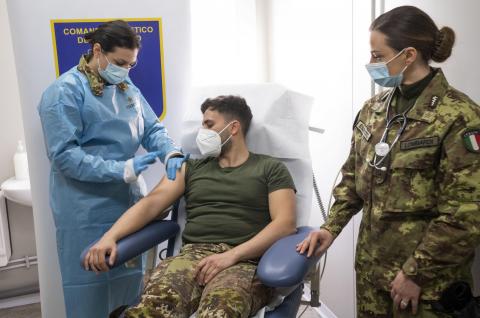In Central and Southeast Europe, the EU Is Losing Vaccination Race to Russia

Besides the immediate impact on the lives and health of citizens across Europe, the outcome of this vaccination race could have major geopolitical repercussions that reverberate for years to come.
"Russia will gladly take up any issue that can divide the EU," Maxim Samorukov, deputy editor and a fellow at Carnegie Moscow, told BIRN. "This is a great opportunity to show that Russia is better organised, better mobilised."
Cracks began to appear in the unity of the EU's centralised vaccination procurement and distribution program on February 2, when the interim results from a phase 3 trial of Russia's Sputnik V, published in The Lancet, showed its COVID-19 vaccine "appears safe and effective" with more than a 90 per cent efficacy. Sputnik V was developed by Russia's Gamaleya National Centre of Epidemiology and Microbiology.
Together with German Chancellor Angela Merkel's remarks the same day praising the "good data" on Sputnik V and "every vaccine is welcome in the European Union", this gave countries a strong signal to start looking at non-EU approved vaccines to speed up the painfully slow central program of Brussels, which was being blamed for ordering too few vaccines too late.
Unsurprisingly, Hungary, whose government is a famously trenchant critic of the EU, was the first member state to step outside of the bloc's vaccination program, administering the first doses of the Russian jabs from February 11.
"I am back at work, in my office," Hungarian Prime Minister Viktor Orban posted on social media after being inoculated with the Chinese Sinopharm vaccine, which Hungary was also the first EU member state to obtain on February 16. "As you can see, I am safe and sound. You do not need to be afraid either."
Next in line was...
- Log in to post comments










